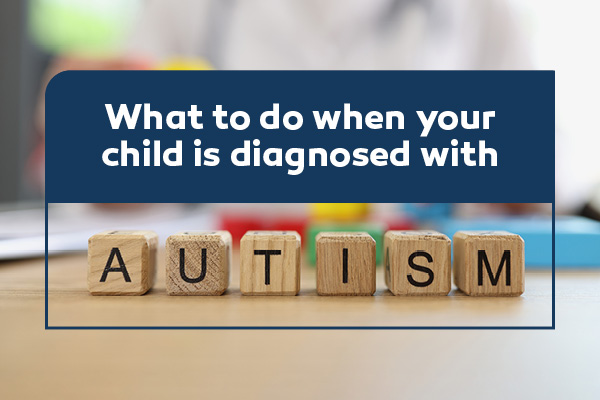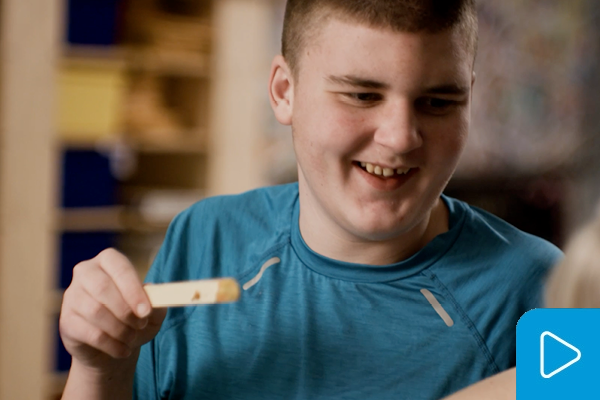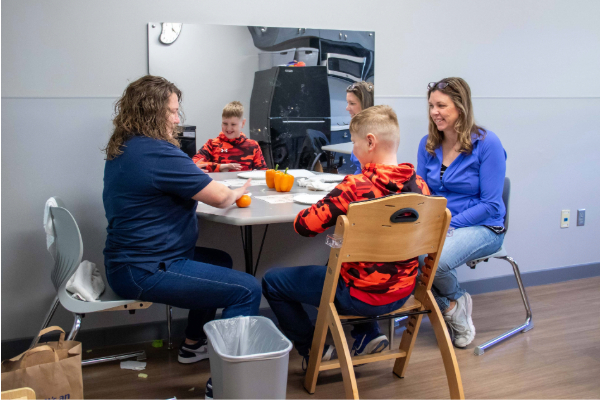2 MIN READ
What To Do When Your Child Is Diagnosed With Autism
A Guide For An Autism Diagnosis
By: Betsy Thompson, Outpatient Services ABA Manager

A diagnosis of autism can be a difficult time for not only parents but also the entire family and close network of friends. There will be questions and uncertainties about future goals and plans. Siblings may struggle with both relationships with their parents and the child as well as what to say to their friends. The child being diagnosed may also have questions and concerns about how they are feeling and what an autism diagnosis means for their future. There are services available to help children and adults along with their families navigate the journey.
In order to receive an autism diagnosis, a child may exhibit some of the following symptoms:
- Difficulty with social communication and interaction skills
- avoids eye contact
- lacks facial expressions by 9 months
- does not share interests by 15 months
- does not point to show you something by 18 months
- does not engage in pretend play by 48 months
- Has restrictive or repetitive behaviors
- lines up toys and gets upset if they are moved
- focused on parts of objects
- flaps hands
- rocks body
- must follow certain routines
- Other characteristics
- delayed language and movement skills
- hyperactivity or impulsivity
- unusual mood or emotional reactions (CDC, 2022)
Once a diagnosis has been given, there are options to help parents get services for their child. If the child is younger than three, therapies would be provided through a local clinic. This may look like speech therapy, occupational therapy, or behavioral therapy. These services may need a referral from your developmental pediatrician or the doctor that determined the diagnosis. Your doctor most likely has a list of clinics that they recommend for possible therapies. Once you have the referral, your next step would be to call local clinics and schedule appointments or complete paperwork for their waitlist. Many clinics accept insurance to cover therapy sessions, but you will need to call both the clinic and your insurance company to determine eligibility and covered services.
If your child is older than three, contact your local school district as well. They can provide you with a school evaluation, an individualized education program, and a possible school placement.
While waiting for services, there are things that you can do to help your child and your family run more smoothly. One area that is very helpful is keeping your daily schedule and routine as consistent as possible. Have a structure set up throughout the day to help with expectations. Use timers and warnings to signal that activities are coming to an end and that new activities are going to start. A visual schedule can be helpful to show a child the order of their day and when to expect their favorite activities. Finally, try to stay consistent with your expectations and how you handle behaviors. It is most helpful if everyone in the child’s life follows the same house and community rules so that the child learns the boundaries in their environment (Behavioral Innovations, 2022).
An autism diagnosis can be an overwhelming experience for the entire family but finding support groups can be very helpful. Support groups can be for all ages and can help siblings find shared experiences with other kids. You could start with your doctor for lists of resources to contact for therapies for the whole family if wanted.
References:
Centers for Disease Control and Prevention (2022)
Behavioral Innovations (2022)




